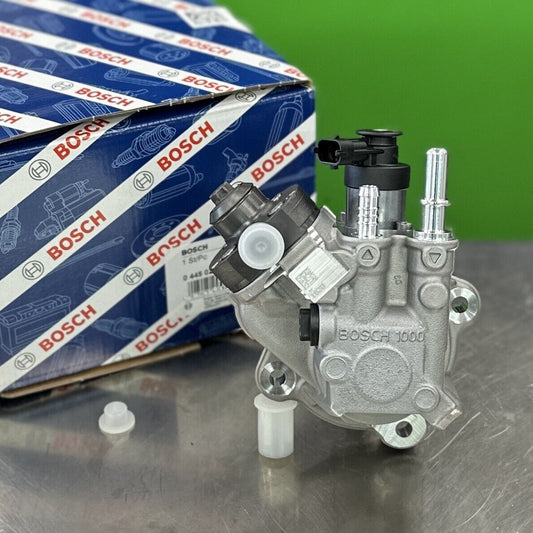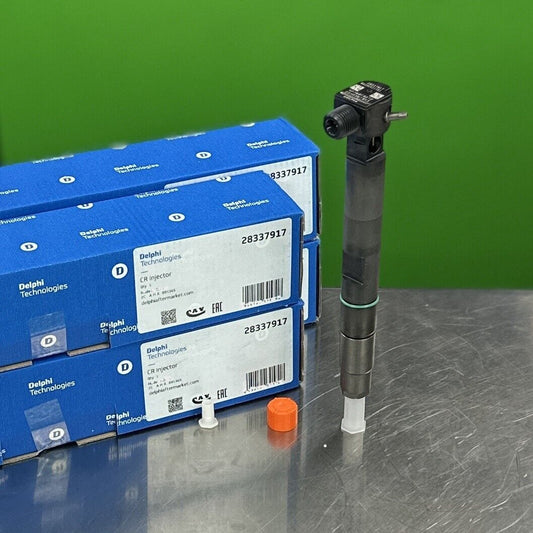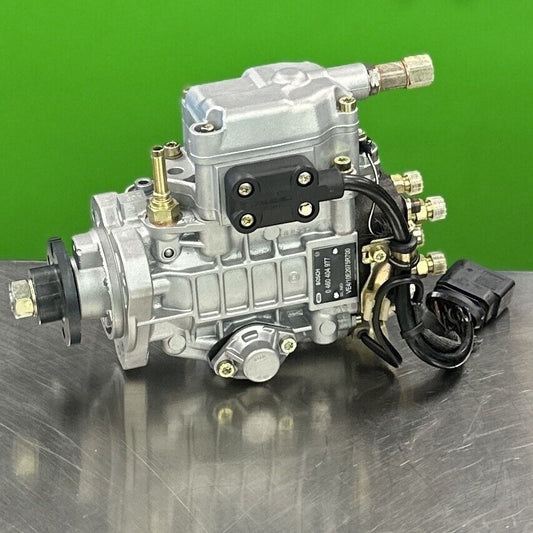How to Tell If Your Fuel Injector Is Failing
When it comes to the health of your vehicle, the fuel injector plays a crucial role in ensuring optimal performance. Recognizing the signs of a failing fuel injector early on can save you from potential headaches and costly repairs down the road. Let's dive into the key indicators that can help you determine if your fuel injector is on the verge of failing.
One of the primary red flags indicating a failing fuel injector is a noticeable decrease in your vehicle's fuel efficiency. If you find yourself making more frequent trips to the gas station or notice a sudden drop in miles per gallon, it could be a clear indication that the fuel injector is not functioning as it should. This inefficiency can stem from the injector not delivering the correct amount of fuel to the engine, leading to wastage and decreased performance.
Another telltale sign of a failing fuel injector is the occurrence of engine misfires. When the fuel injector fails to supply the engine with the precise fuel-air mixture needed for combustion, it can result in misfires, rough idling, or even stalling. These issues can disrupt the smooth operation of your engine and impact overall driving experience.
If you start noticing strange odors emanating from your vehicle or observe an increase in smoky exhaust, it's crucial to investigate the possibility of a leaking fuel injector. The presence of a strong gasoline smell or black smoke in the exhaust can signal a serious problem that not only affects engine performance but also poses safety risks. Addressing this issue promptly is essential to prevent further damage.
Engine performance problems such as lack of power, hesitation during acceleration, or rough engine operation can also point towards a failing fuel injector. When the injector fails to deliver fuel efficiently to the engine cylinders, it can manifest in various performance issues that impact the overall drivability of your vehicle. Ignoring these symptoms can lead to more severe complications.
Lastly, keep an eye out for your vehicle's check engine light. Modern cars are equipped with onboard diagnostics systems that can detect irregularities, including fuel injector malfunctions. If the system identifies a problem with the fuel injector, it will trigger the check engine light to alert you to the issue. Don't ignore this warning sign, as addressing the problem early can prevent further damage and ensure the longevity of your vehicle.
Decreased Fuel Efficiency
When your vehicle's fuel efficiency takes a nosedive, it's like watching your favorite balloon slowly lose air. You fill up the tank, but it seems to vanish faster than a magician's disappearing act. This sudden drop in fuel efficiency is not just a random occurrence; it could be a red flag signaling a failing fuel injector.
Imagine your fuel injector as a diligent waiter at a fancy restaurant, responsible for delivering the precise amount of fuel to the engine's table. However, if this waiter starts slacking off, serving less fuel than needed, your engine's performance suffers, and your wallet feels the pinch at the pump.
One of the key indicators of a failing fuel injector is this decreased fuel efficiency. It's like trying to run a marathon with a pebble in your shoe – your vehicle struggles to perform efficiently, leaving you wondering where all that fuel went.
If you find yourself making more frequent stops at the gas station, despite driving the same routes, it's time to investigate the health of your fuel injector. Don't let a sneaky injector steal your hard-earned money and compromise your vehicle's performance.
Engine Misfires
Frequent engine misfires can be a frustrating and concerning issue for any vehicle owner. Imagine driving along smoothly, and suddenly, your engine starts to sputter and jerk like a rollercoaster ride gone wrong. It's not just an annoyance; it's a clear indication that something is amiss with your fuel injector. These misfires, along with rough idling or even stalling, are like warning signs flashing in bright neon lights, telling you that your fuel injector might be on the verge of giving up the ghost.
When your fuel injector is failing, it fails to deliver the precise amount of fuel needed for combustion in the engine cylinders. It's like a chef who keeps messing up the recipe, adding too much of one ingredient and not enough of another. The result? A dish that tastes off, or in this case, an engine that misfires and struggles to perform at its best.
Picture this: You press down on the gas pedal, expecting a smooth and swift acceleration, but instead, there's a hesitation, a lag in response that leaves you feeling like you're dragging a heavy weight behind you. This hesitation during acceleration is a classic symptom of a fuel injector that's not up to par, failing to provide the engine with the fuel it needs to rev up and go.
It's not just about the performance issues; engine misfires caused by a failing fuel injector can also have a domino effect on other components of your vehicle. Think of it like a chain reaction, where one weak link can cause the entire system to falter. Ignoring these misfires can lead to more severe problems down the road, potentially costing you more time and money in repairs.
So, if you're experiencing engine misfires, rough idling, or stalling, don't just brush it off as a minor hiccup. These symptoms are your car's way of telling you that something is amiss under the hood. Take heed of these warning signs, and address the issue promptly to prevent further damage and ensure your vehicle runs smoothly for miles to come.
Strange Odors or Smoky Exhaust
Strange odors or smoky exhaust coming from your vehicle can be alarming signs that something is amiss with your fuel injector. When you catch a whiff of gasoline or notice black smoke billowing from the tailpipe, it's time to investigate further. These unusual smells and visual cues are not just unpleasant; they can indicate a serious issue that needs immediate attention.
A leaking fuel injector is often the culprit behind these strange odors and smoky exhaust. This leakage can lead to an imbalance in the air-fuel mixture, resulting in poor engine performance and potential safety hazards on the road. Ignoring these warning signs can lead to more significant problems down the line, so it's crucial to address them promptly.
Imagine your car as a finely tuned orchestra, with each component playing a crucial role in harmony. When a fuel injector starts to fail, it's like a discordant note disrupting the entire symphony. The result? A cacophony of strange odors and smoky exhaust that signal trouble brewing under the hood.
To determine if your fuel injector is the source of these issues, a thorough inspection is necessary. Look for any visible signs of leaks around the injector or the smell of gasoline near the engine. Additionally, pay attention to the color and consistency of the exhaust coming from your vehicle – black smoke is a clear indicator of a fuel-related problem.
If you suspect a failing fuel injector is behind the strange odors and smoky exhaust, don't delay in seeking professional help. A trained mechanic can diagnose the issue accurately and recommend the necessary repairs to get your vehicle back on track. Remember, addressing the problem early can prevent more extensive damage and keep you safe on the road.
Engine Performance Issues
When your vehicle's engine is not performing at its best, it can be frustrating and concerning. Engine performance issues are often a clear indication that something is amiss, and one common culprit is a failing fuel injector. Just like a well-orchestrated dance, the engine requires the perfect balance of fuel and air to function smoothly. However, when a fuel injector is on the fritz, this delicate balance is disrupted, leading to a host of performance problems.
Imagine your engine as a finely tuned athlete ready to sprint but suddenly feeling sluggish and out of breath. A failing fuel injector can cause your vehicle to lack power, making acceleration feel like a struggle. It's as if your engine is gasping for fuel, unable to deliver the performance you expect. This can not only be frustrating but also potentially dangerous, especially in situations where quick acceleration is necessary for safety.
Furthermore, hesitation during acceleration is another telltale sign of a fuel injector issue. It's like trying to run a race with a pebble in your shoe – each step feels uncertain and unsteady. When the fuel injector is not delivering fuel efficiently to the engine cylinders, the engine struggles to respond promptly to your commands, resulting in a noticeable lag in acceleration. This can make driving feel unpredictable and compromise your overall driving experience.
Additionally, rough engine performance can be attributed to a failing fuel injector. Picture your engine as a finely tuned instrument producing a smooth melody, but with a faulty fuel injector, the notes become jumbled and discordant. The engine may sound rough, vibrate excessively, or produce unusual noises, indicating that the combustion process is not running as smoothly as it should. This not only affects the engine's performance but also its longevity, potentially leading to more severe issues if left unaddressed.
In conclusion, engine performance issues are a red flag that should prompt you to investigate the health of your fuel injector. By paying attention to signs such as lack of power, hesitation during acceleration, and rough engine performance, you can catch potential fuel injector problems early and prevent further damage to your vehicle. Remember, a well-maintained fuel injector is key to keeping your engine running smoothly and efficiently.
Check Engine Light
When the on your vehicle's dashboard suddenly illuminates, it can send a wave of panic through any driver. This small yet powerful indicator is like a silent guardian, watching over your engine's health and alerting you to any potential issues that may arise. But what does it really mean when that ominous light comes on? Is it a minor glitch, or a major problem waiting to erupt like a volcano?
Imagine the check engine light as a sentinel perched on the edge of a cliff, scanning the vast landscape of your vehicle's internal systems. When it detects a disturbance, it doesn't hesitate to sound the alarm, warning you of impending danger. It's like a loyal companion, always there to notify you of any abnormalities that could impact your driving experience.
When this light flickers to life, it's like a sudden thunderclap on a clear day, disrupting the peace and demanding your attention. It serves as a silent messenger, conveying a message from your car's intricate network of sensors and systems. It's a call to action, urging you to investigate and address the underlying issue before it escalates into a full-blown crisis.
So, what should you do when faced with the ominous glow of the check engine light? It's not a time to panic but rather a time to act with caution and diligence. Treat it as a signal flare from your vehicle, guiding you towards the source of the problem. Ignoring it could be like turning a blind eye to a ticking time bomb, waiting to explode at the most inconvenient moment.
Remember, the check engine light is not your enemy but a friendly informant providing valuable insights into your vehicle's well-being. Embrace it as a partner in maintenance, helping you keep your car running smoothly and efficiently. So, the next time it illuminates, don't fear the unknown but instead see it as an opportunity to uncover the mystery lurking beneath the surface.
```htmlFrequently Asked Questions
-
How can I tell if my fuel injector is failing?
There are several signs that indicate a failing fuel injector. Look out for decreased fuel efficiency, engine misfires, strange odors or smoky exhaust, engine performance issues, and the check engine light coming on. If you experience any of these symptoms, it's best to have your fuel injector checked by a professional mechanic.
-
Can a failing fuel injector cause safety hazards?
Yes, a failing fuel injector can lead to safety hazards. A leaking fuel injector can result in a strong smell of gasoline or black smoke in the exhaust, which not only affects engine performance but also poses a fire risk. It's crucial to address fuel injector issues promptly to ensure the safety of your vehicle.
-
What should I do if I notice engine performance issues?
If you notice engine performance issues such as lack of power, hesitation during acceleration, or rough engine performance, it's advisable to have your fuel injector inspected. These symptoms could indicate a problem with the fuel delivery system, and timely intervention can prevent further damage to your vehicle.



